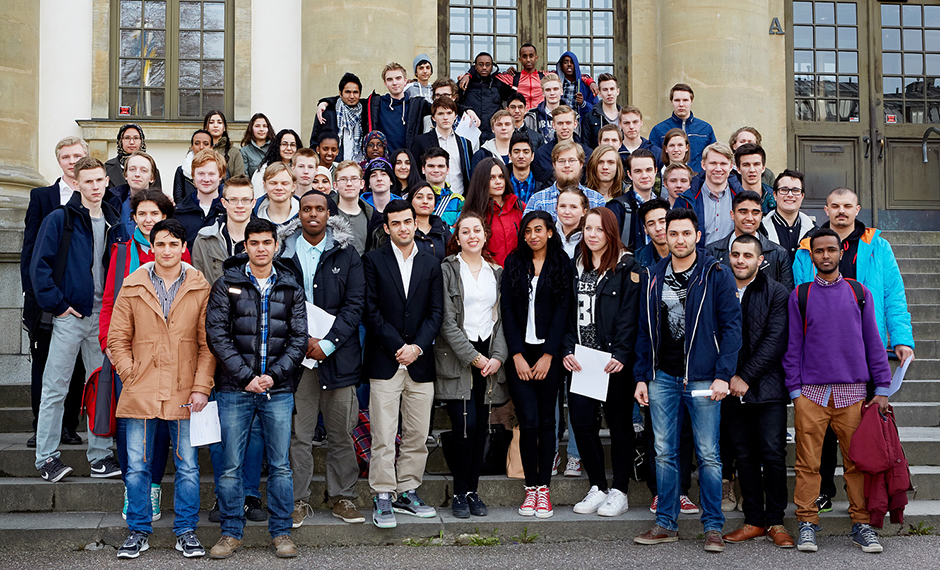How does Stockholm need to change to meet the demands and challenges of the future? Driverless electric cars and better recycling facilities were some of the proposals in resolutions developed by a group of Swedish pupils and passed in a student parliament held in April 2014. The parliament’s final debate took place in the debating chamber of the County Hall in Stockholm, where the resolutions were handed over to Per Ankersjö, the Vice-Mayor for Environment at the City of Stockholm.

Over 3 days, 8 – 10 April, pupils from Thorildsplans Gymnasium, an upper secondary school in Stockholm, participated in lively discussions about research, policy and the future of Stockholm in a student parliament on urban sustainability. How will the city be able to feed its inhabitants and at the same time withstand the challenges of climate change? The programme consisted of group exercises, interviews with researchers, brainstorming of the problems and, most importantly, coming up with possible solutions. The Parliament culminated in a final debate held at the County Hall in Stockholm, where the student groups argued for their resolutions.
In the final debate, the parliament passed two of the five resolutions. The first focused on the city as a ‘raw materials mine’ and a place for the future cultivation of food. According to the resolution, there is a need for more food to be grown in our cities, more recycling facilities, more composting, less consumption, increased recycling of consumer electronics and courses on sustainable development. The second resolution looked at how to make Stockholm a smarter city and contained suggestions for dealing with problems, such as public transport delays, lack of parking spaces, unnecessary energy consumption and ensuring everyone has access to the Internet and information.
The Vice-Mayor for Environment at the City of Stockholm, Per Ankersjö, was present at the County Hall to receive the passed resolutions and commented: “I am impressed by the students’ resolutions and will show them to my colleagues at the City of Stockholm. Several of the suggestions have been under consideration in the past and some are actually in the process of being implemented.”
The Student Parliament was organised by the Swedish organisation Vetenskap & Allmänhet (Public & Science) with support from the research council Formas. It constitutes the Swedish part of a large European project – European Student Parliaments on Science – in which 19 student parliaments are being held across Europe. A European final, bringing together students from each of the participating countries, will take place during Europe’s largest research conference, the Euroscience Open Forum (ESOF) in Copenhagen in June. The project is coordinated by the German organisation Wissenschaft im Dialog with support from the Robert Bosch Foundation.
Read the Stockholm students’ resolutions in English here.
Read more about the European project here.
